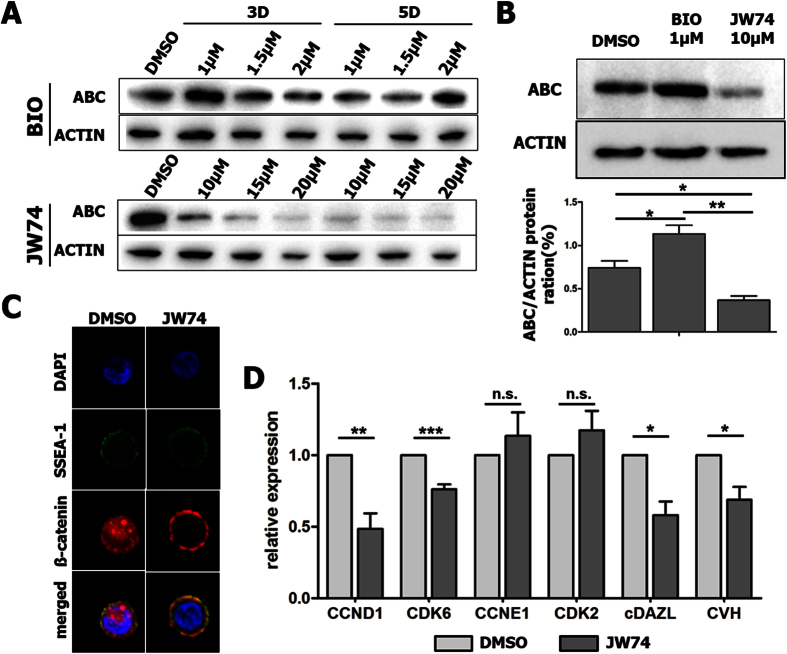Figure 2. Regulation of β-catenin signaling by 6-bromoindirubin-3′-oxime (BIO) or JW74 treatment for optimization of chicken PGCs (SNUhp26) in vitro.
(A) The level of active β-catenin (ABC) changed after BIO or JW74 treatment in a dose-dependent manner, as determined by Western blotting. (B) BIO applied at 1 μM and JW74 at 10 μM for 3 days showed optimal effects to increase or decrease the β-catenin level. BIO, a GSK3β inhibitor; JW74, a β-catenin inhibitor. (C) Immunostaining showed that JW74 treatment caused the degradation of β-catenin in both the nucleus and cytoplasm in chicken PGCs. (D) JW74 treatment caused downregulation of cell cycle-related genes essential for entry in G1 phase (CCND1 and CDK6) and germ cell-specific genes (cDAZL and CVH), but no effect on cell cycle-related genes regulating progression from G1 to S phase (CCNE1 and CDK2) as confirmed by qRT-PCR. Values in (B) and (D) represent mean ± standard error of the mean (SEM) of triplicate analyses. *P < 0.05, **P < 0.01, and ***P < 0.001. n.s.; not significant.

